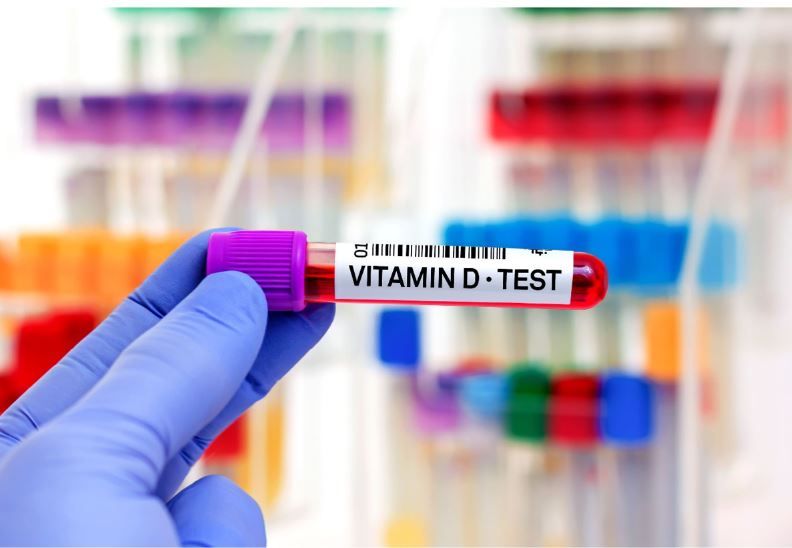- Clinical Technology
- Adult Immunization
- Hepatology
- Pediatric Immunization
- Screening
- Psychiatry
- Allergy
- Women's Health
- Cardiology
- Pediatrics
- Dermatology
- Endocrinology
- Pain Management
- Gastroenterology
- Infectious Disease
- Obesity Medicine
- Rheumatology
- Nephrology
- Neurology
- Pulmonology
Vitamin D Deficiency Linked with Recurrent C diff Infection in New Cross-Sectional Study
People with vitamin D deficiency (VDD) who become infected with Clostridioides difficile may face a significantly higher risk of recurrence, according to new findings published in the journal Cureus. Authors of the cross-sectional study suggest the likely mechanism involved is the role of vitamin D in normal intestinal homeostasis and barrier function. Vitamin D also has been found essential to the health of the gut microbiome.
©angellodeco/stock.adobe.com

Clostridioides difficile infection (CDI) is a persistent problem in health care facilities, accounting for 15% of all health care–associated infections in the United States, wrote study authors led by Siddharth Verma from the department of gastroenterology and hepatology at the East Orange VA Medical Center, East Orange, NJ. Populations at highest risk are elderly, hospitalized patients and those who are immunocompromised. The well-known paradox of CDI is that the first line treatment for initial infection is use of antibiotics—which are also the highest risk factor for CDI. Initial cases of infection often can be resolved with antibiotics, but even successful treatment is often followed by recurrent CDI (rCDI).
VDD is among several nutritional deficiencies with evidence of an association with CDI, Verma and colleagues added. Given the limited research into the direct impact of VDD specifically on morbidity and mortality of hospitalized patients with CDI, the research team set out to investigate clinical outcomes in this population who also have a history of VDD.
Using data from the National Inpatient Survey of US hospitalizations from 2016 through 2019, investigators identified 73 745 patients who were admitted to the hospital with CDI. Among them 1756 also had VDD. They found that on average, age was similar in groups both with and without VDD (66.12 years vs 66.26 years, respectively). Women comprised the majority of both groups although the proportion was greater among the VDD group than the non-VDD group, the authors reported. The entire cohort was predominantly White (mean 73%).
According to the study, the primary outcomes of interest were mortality, CDI recurrence, ileus, toxic megacolon, perforation, and colectomy.
FINDINGS
The investigators reported that the rate of CDI recurrence was higher after a primary infection among those with VDD than those without the deficiency (17.4% vs 14.7%; P < .05). Hospital stays in the former group were also slightly longer than among the latter (10.38 days vs 9.83 days; P =.039).
Conversely, they found that the mortality rate was higher among patients who did not have VDD (6.1% vs 3.1%; P < .05), as was the rate of ileus (3.6% vs 2.6%; P = .024). Moreover, hospital expenses were higher among patients without the deficiency than those with it ($102 527.90 vs $93 935.85).
Among other outcomes, the researchers reported differences between groups in the rates of toxic megacolon, colonic perforation, and colectomy were statistically insignificant.
The authors point to several reasons proposed for the observed relationship between VDD and higher rates of recurrence.
“Firstly, vitamin D increases the expression of several antimicrobial peptides in the intestinal epithelium, such as cathelicidins (LL-37) and β-defensin, which serve critical roles in maintaining gut microbiome integrity,” they wrote.
Vitamin D also has been shown to promote structural integrity of the intestinal lining and, when provided as a supplement to patients deficient in vitamin D, significantly improved diversity in gut microbiota.
Inverse association unclear
The inverse association between VDD and mortality is unclear, said Verma et al. They note that that their study contradicts previous published reports some of which suggested that patients with very high and very low levels of vitamin D had the highest mortality rates (a U-shaped correlation). They point out that in these studies, it may be that the sickest patients (those at highest risk of mortality in the first place) are receiving vitamin D supplementation, “providing a fictitious inverse correlation between VDD and mortality.”
Studies like this one will become increasingly important to guide clinical management of CDI, they wrote, particularly as incidence of the infection is expected to increase along with the aging population.
“Further investigation is needed to evaluate the impact of varying degrees of VDD on the chances of developing recurrent CDI,” they said. “In addition, future research may evaluate the impact of vitamin D supplementation even in nondeficient patients in improving CDI outcomes.”
Source: Khrais A, Mathew AG, Kahlam A, Le A, Mittal A, Verma S. Investigating the correlation between clostridioides difficile infection and vitamin D deficiency. Cureus. 2023;15(6):e39970. doi:10.7759/cureus.39970
Clinical Tips for Using Antibiotics and Corticosteroids in IBD
January 5th 2013The goals of therapy for patients with inflammatory bowel disorder include inducing and maintaining a steroid-free remission, preventing and treating the complications of the disease, minimizing treatment toxicity, achieving mucosal healing, and enhancing quality of life.
